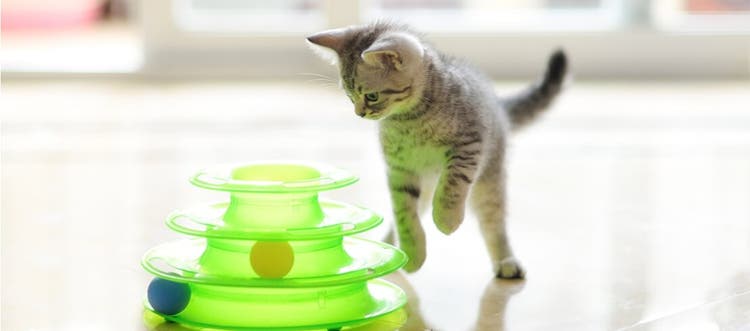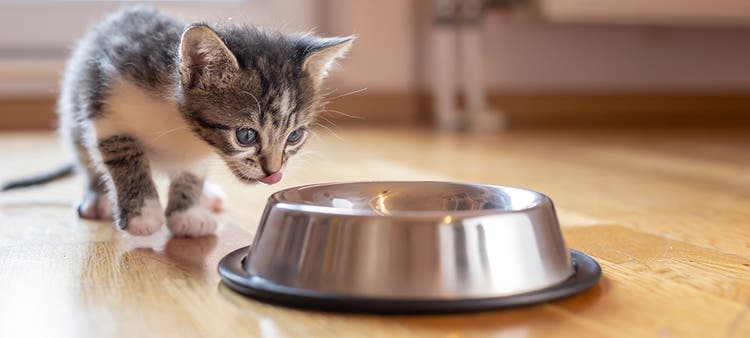A helpful breakdown of what to expect for your new cat or kitten’s first week at home.
The first week at home with a new cat or kitten is a particularly important time for establishing trust, routines and a sense of safety.
First day with a new cat or kitten
Have a space already set up for your cat
Choose a small, quiet room in the house to place your cat’s bedding, food and water. Cats typically prefer having the litter box in a separate corner of the room away from their other things. It is a good idea to have at least one safe, accessible hiding place for your cat, like a cardboard box or the underside of a bed.
Bring home familiar smells
If possible, rub a towel on your cat’s or kitten’s previous bedding and kennel walls so that it carries a familiar scent. The towel can be placed inside your cat carrier to ease the transition home. Once you arrive home, the towel can remain in the carrier to reinforce it as a safe space and/or rubbed on your kitty’s new bedding to help them recognize it as their own. You may also want to use the same type of litter in your cat’s litter box as was used in their previous home.
Allow time for your new cat or kitten to adjust
Bringing home a new friend is exciting, but it’s important to remember that your cat or kitten has had much less time to adjust to the idea than you have. Your cat may hide or be less affectionate at first. When you first get home, place the carrier in a small, quiet room in the house with a litter box, fresh food and water nearby. Open the carrier so they can explore the room at their own pace.
Start playing
Once your cat or kitten has ventured out from their carrier, you can start encouraging safe playtime with toys like cat wands and soft balls. This will help your cat use up their energy, satisfy their predatory instincts, and begin the bonding process. A little playtime goes a long way, especially in the beginning.
First week with a new cat or kitten
Stay close during the first few days at home
Ideally, you should stay home during the first few days after your new cat or kitten arrives to help them adjust. Use this time to allow them to safely tour the rest of your home one room at a time. Be sure to stay with your cat or kitten anytime they are in a new space. Not only will this help them feel more at ease, it will also clue you in on any safety concerns you may not have noticed beforehand.
Make sure your cat is eating, drinking and using the litter box
The stress of being in a new home can affect a cat’s appetite and cause stomach issues. It’s important to provide fresh food and water daily and clean out the litter box regularly. If your new cat or kitten is not eating, drinking and defecating by the second day, contact your veterinarian.
Schedule your first visit with a veterinarian
If you haven’t already done so, schedule a visit with your veterinarian within the first week at home. Bring any of your cat’s health records you may have, such as vaccination history. It’s also a good idea to bring a list of questions with you to the appointment so you remember to ask about important topics like diet, behavior, parasite prevention, etc.
Establish and maintain daily routines
Your new cat or kitten may not know what to expect in their new home. As much as you can, establish routine times for feeding, watering and playing. Try replenishing your cat’s food and water in the morning before you leave for work and as soon as you get home. This can help alleviate unnecessary anxiety for your cat. Regular playtime is also important to keep your cat active and stimulated.
Related Articles

New Cat or Kitten: Our Downloadable Guide
Thinking about adding a feline to the family? There are so many emotional, social and physical benefits to owning a cat. Check out our free guide, also available to download!



